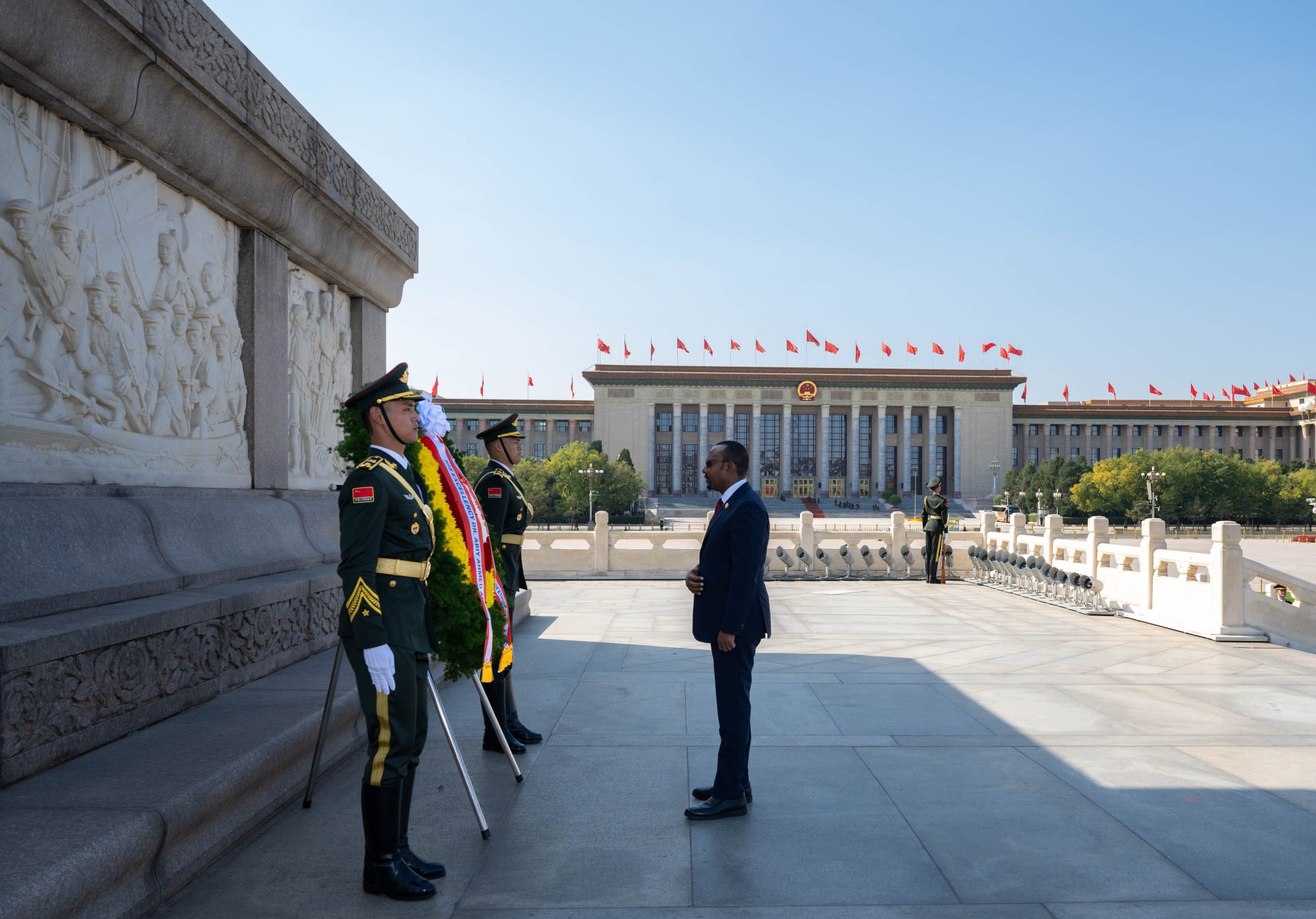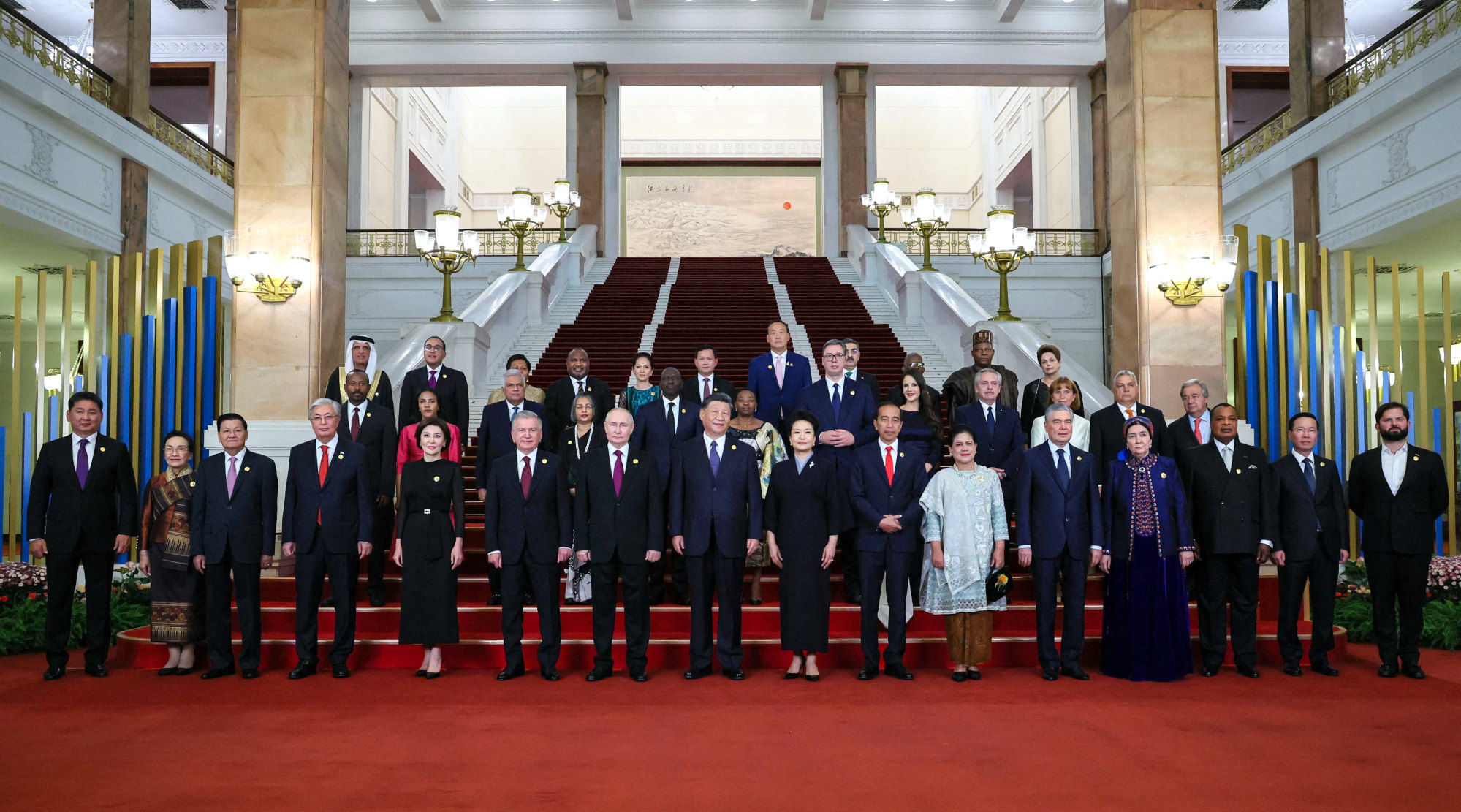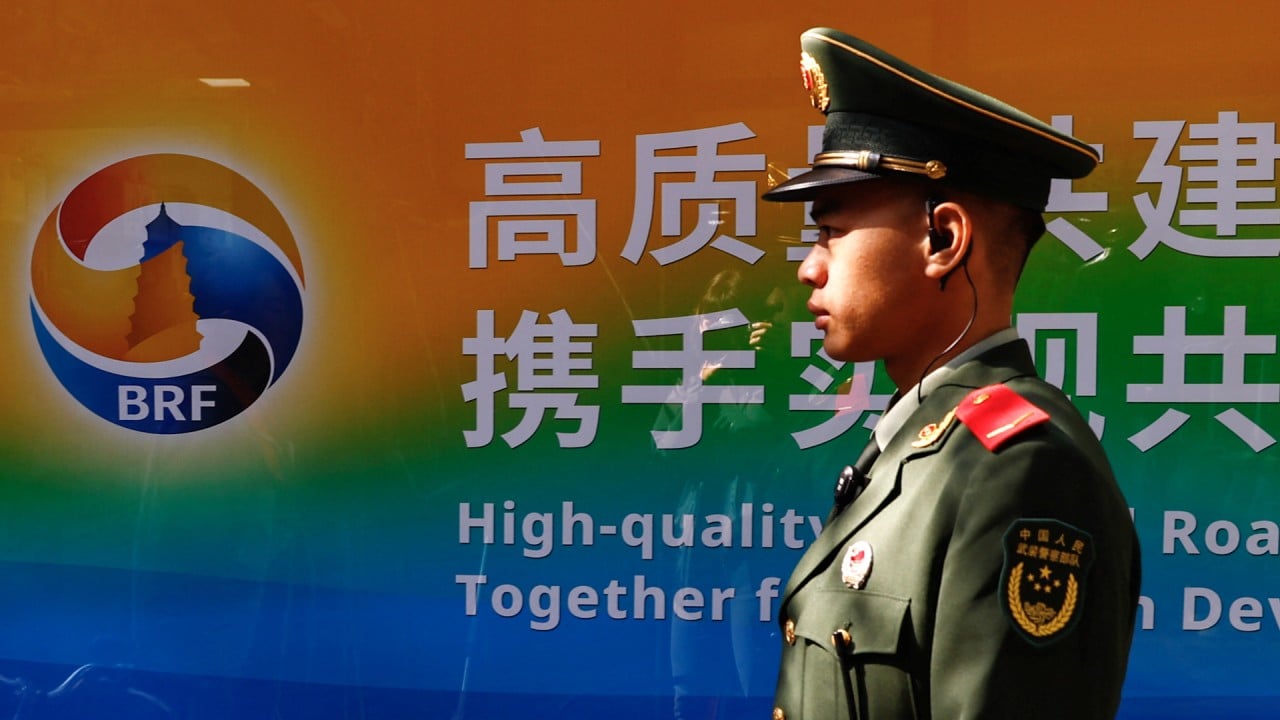
Xi Jinping kicks off belt and road forum with diplomatic charm offensive
- Xi seeks to position China as supportive partner in meetings with Kazakh and Ethiopian leaders in Beijing
- China hopes the summit to mark 10 years of the Belt and Road Initiative will help expand the country’s influence among developing countries
The two-day summit, which kicked off on Tuesday, marks the 10th anniversary of the Belt and Road Initiative, a global infrastructure and investment scheme that Beijing has touted as an alternative development model for developing countries.
Xi tried to portray China as a reliable and trusted partner to the developing world in his meetings on Tuesday.
In a meeting with Kazakh President Kassym-Jomart Tokayev, Xi reaffirmed Beijing’s “firm opposition to inference by external forces in the internal affairs of Central Asia”, according to the Chinese foreign ministry.
The two sides should also step up efforts to increase people-to-people exchanges to “cultivate the foundation of public opinions between the two societies”, Xi added.
China’s railways in poor nations cut through mountains — and underdevelopment?
In a separate meeting with Ethiopian Prime Minister Abiy Ahmed, Xi pledged to support the African country “in safeguarding its sovereignty, security and development interests”.
Xi said on Tuesday that China would “support and participate in” post-war reconstruction efforts in Ethiopia.
“China is ready to work with Ethiopia to … join hands in the journey to promote peace and development and to build a community of human destiny,” he added.

The two sides also agreed to upgrade their bilateral ties to an “all-weather strategic partnership”.
Xi said this would be an opportunity for the two countries to “be friends of common development and win-win cooperation and partners in promoting South-South solidarity and cooperation and upholding international justice”.
This year’s forum is the first to be held since 2019 and Chinese officials say it will be attended by representatives from at least 130 countries and 30 global organisations.
However, unlike the last summit in 2019, when officials from Europe, including the then-Italian prime minister Paolo Gentiloni also attended, this year’s event is largely being shunned by Western countries.
Hungarian Prime Minister Viktor Orban is the only leader from the European Union attending, and the current Italian government, led by Giorgia Meloni, is considering pulling out of the Belt and Road Initiative altogether.
On Tuesday, Xi met Orban, telling him that Beijing “is willing to continue to be a good friend and partner with Hungary in terms of mutual trust and win-win cooperation”.
He also spoke of the “deepening political trust” between the two countries and urged Hungary to help complete a belt and road-funded project to build a high-speed rail link between Budapest and the Serbian capital Belgrade.
The project was initally supposed to start operating next year, but local media reports have suggested that construction work has been halted because the Chinese contractors have failed to meet EU safety standards.
Xi is expected to meet Putin on Wednesday, when the two leaders will exchange views on international issues and regional conflicts, including the Ukraine war, according to Kremlin spokesman Dmitry Peskov.

In his meeting with Indonesian President Joko Widodo, Xi called for a joint effort to “demonstrate the responsibility of developing powers to make concerted efforts to promote changes in the global governance system, and safeguard international fairness and justice”.
Indonesia is the largest member of the Association of Southeast Asian nations, and Xi said close coordination between the two sides is needed to “safeguard Asean centrality”.
Plans to increase transport and trade links across Eurasia are one of the core elements of the Belt and Road Initiative, but Beijing is also trying to use it to expand its influence in Africa and South America.
China declares redoubled commitment to mark decade of belt and road
During his meeting with the Chilean President Gabriel Boric, Xi said China would continue to “strengthen coordination” with Chile “to safeguard unity and cooperation among developing countries”.
He also said that Chile the two sides should expand cooperation so that Chile could become a belt and road “bridgehead” in Latin America.
In a joint statement issued following the meeting, Chile invited Chinese firms to participate in the development of the country’s lithium mining industry and green hydrogen projects.


